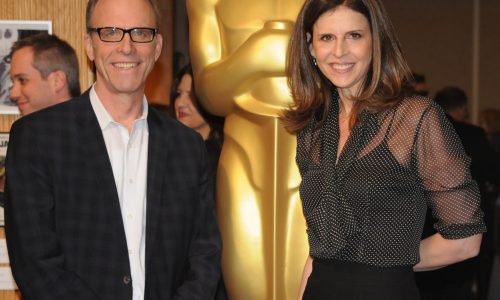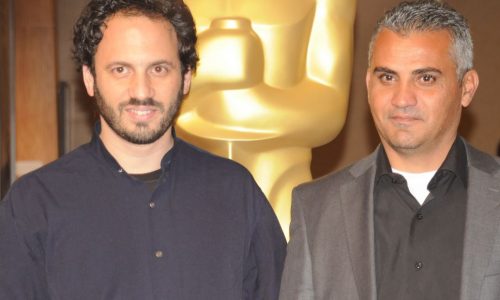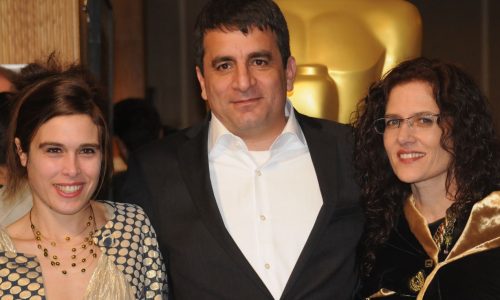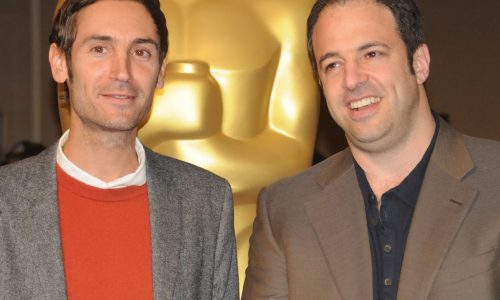
“The purpose of documentaries is to remind people that the world is a horrible place,” joked Oscar winner Michael Moore as he introduced the makers of the films nominated for the Best Documentary Short Subject at a panel discussion at the Academy’s headquarters.
Inocente follows a homeless teenaged immigrant in Los Angeles, Kings Point investigates the problems associated with ageing, Mondays at Racine is about a hairdresser that shaves the heads of chemotherapy patients, Open Heart is about a group of children in Rwanda who require major surgery and Redemption follows a group of gleaners, scouring New York City’s streets and bins for empty cans and bottles that they can sell for 5 cents a time, in order to survive.
While Moore’s comment was tongue in cheek, it’s clear that documentaries are often about describing what the film-makers see as problems with the world that can be fixed only if they’re brought to public attention.
There’s been a growing trend, in recent years, for high profile theatrically released documentaries – and the crème of this year’s crop were recognised at the same event – but it’s notoriously difficult to get an independent documentary short seen by a wider public. Four of this year’s five nominees in the category have already been picked up for broadcast by HBO in the US, but whether they’ll get a wider audience is another matter – ranging in length from 31 to 40 minutes, it’s a difficult length to programme. “Download them,” joked Moore. “But then send twenty bucks to the director.”
Moore, who won the Oscar ten years ago for Bowling for Columbine, opened the Academy’s celebration of documentaries on a downbeat note, remarking that despite his efforts with that film, the news is still full of fatal college shootings. “You start off with the best of intentions, and hope it will do something to make things better.” But he argued that with TV news going down the pan – in a rough translation of his actual words – and newspapers dying out or gone, it’s up to film makers to tell the stories the media no longer tells.

He welcomed the fact that documentary film-makers have chosen film to try to change the world, when they could have decided to run for office or join an organisation, and ending a somewhat sycophantic – if deservedly so – introduction, he said any of this year’s nominees were worthy of an Oscar and he felt very optimistic about the future of non-fiction films.
Moore was keen to point out that some films have had more success than his at changing the world. The Invisible War, Kirby Dick and Amy Ziering’s exposé of widespread rape allegations in the US military, led to new legislation within months of its first festival screening. “Soon after he saw our film” enthused Dick, “the Defense Secretary Leon Panetta announced changes. There’s still a long way to go, but the military now uses the film for its sexual awareness programme.”
Kief Davidson, the director of the short Open Hearts had a similarly positive story to tell. The Rwandan government committed investment in hospitals for children as a direct result of seeing the film, he beamed.
The feature How to Survive a Plague was David France and Howard Gertler’s examination of a battle which they also hope has now been won, as it chronicles the campaign for drugs to beat HIV, when the official response to the AIDS epidemic was, they suggest, muted at best. France suggested that while other films on this subject had looked at what HIV did to communities, his film was the first to contemplate what communities did to HIV, as activists and supportive doctors fought for the drugs that would give hope of survival to sufferers. The film features footage shot at the time by campaigners. France noted, “The movement was ignored by the media, but it was the first to record and document its own history.” You wouldn’t see a modern day protest without demonstrators filming it, although modern technology has also helped in this respect.

There was significantly less optimism about finding any kind of solution to another crisis of international interest, that features in two of the nominees; the Middle East conflict. Palestinian farmer Emad Burnat’s record of settlement building and soldier brutality at the hands of Israelis is brought to public attention in Israeli film-maker Guy Davidi’s 5 Broken Cameras. Sitting next to him on the stage was another Israeli director, Dror Moreh, who achieved a journalistic coup when he persuaded the six surviving former leaders of Israel’s Shin Bet security service to go on the record for the first time in The Gatekeepers. Some of them have come out very much against the current government’s approach to combating the decades long resistance of the Palestinians, living under the control of Israel’s military or the Palestinian security forces working closely with them. Even those who stand by their own actions are agreed that there cannot be a military solution to the conflict. “Using force to suppress another people, whatever the reasons, can’t end in a good way, without a political solution,” Moreh observed.
“Whatever the reasons,” was a sub-clause that he refused to elaborate on, but it highlighted that his view wasn’t quite as clear cut as many promoters of his film have suggested. This is not an anti-Zionist or pro-Palestinian film. This is an anti-violence and pro-talks film. This was peculiarly highlighted when Michael Moore recalled an encounter at the nominees’ dinner a night earlier. While many observers might have expected Moreh and Burnat to see eye to eye on the conflict, Moore noted that the pair had got into such a heated debate about the Middle East that they slipped into Arabic and Hebrew so that others couldn’t understand what they were saying. “So, what were you saying?” Moore asked them.

The Palestinian farmer summed up their disagreement. “He said we have problems on both sides. We don’t have problems on our side. All they have to do is get out.” This did not tally with Moreh’s understanding of the conflict. “We’re living in reality, not dreamland,” he began. “It’s horrible to live under a military occupation and my film is trying to stop that, but we have fear, mistrust and bad leaders.” For him, the only way out of any such conflict is to empathise with your enemies. “Both sides have to do that,” he stressed, in contrast to Burnat’s insistence that the Palestinians have done nothing wrong. Perhaps a failure of Moreh’s own film is to have concentrated on the Shin Bet’s activities to such an extent that uneducated viewers might not be aware of just what Israel feels that it is protecting itself from. Concluding that he saw the future as being “very bleak” for the region, Moreh recalls a passage from The Gatekeepers where one of the former Shin Bet leaders, Ami Ayalon, said a Palestinian negotiator once told him “Victory for us is to see you suffer.” Unless talks resume within what Moreh says is a very short window, this is his prediction of the near future for both sides.

The only light relief of the night came from the theatrically successful and critically acclaimed Searching for Sugar Man, in which Swedish director Malik Bendjelloul and his Oscar-winning British producer Simon Chinn, relate the story of how the 1970s singer Rodriguez was thought to have died, but built up such a following in South Africa, that two of his fans decided to seek the truth about his disappearance. “You could have made it,” Bendjelloul laughed, pointing to Moore. “He told me he wrote to you ten years ago and offered you the chance to make his story.” Moore joked that he’d have messed it up, but told the audience that the moral of the story was always to open your mail.
There’s no question from the films in contention for this year’s documentary Oscars, both long and short, that there’s talent and passion in abundance in the genre and there’s certainly much debate to be had about everything from social policy to international diplomacy. In some cases, documentaries have been proven to change the world as envisaged by the directors, in others, the aspirations have been too ambitious for films to set the ball rolling.
But perhaps the most uplifting messages came from some of the short subject nominees. Robin Honan, who lost her mother to cancer at a young age, said that after making Mondays at Racine, people who saw it said the film made them feel less alone. Documentaries are, to a large extent, about sharing experiences, but – as Moore pointed out – they also exhilarate, thrill and upset – but most importantly, they leave the audience asking questions.
When he asked the directors whether it was the job of the film-makers to ask “why?” or simply to describe “who, what, when, where, how?”, Inocente’s director Sean Fine said that it was up to the nominees to tell stories, using the tools of cinema and it was up to the audiences to ask “why?” and then do something about it.
